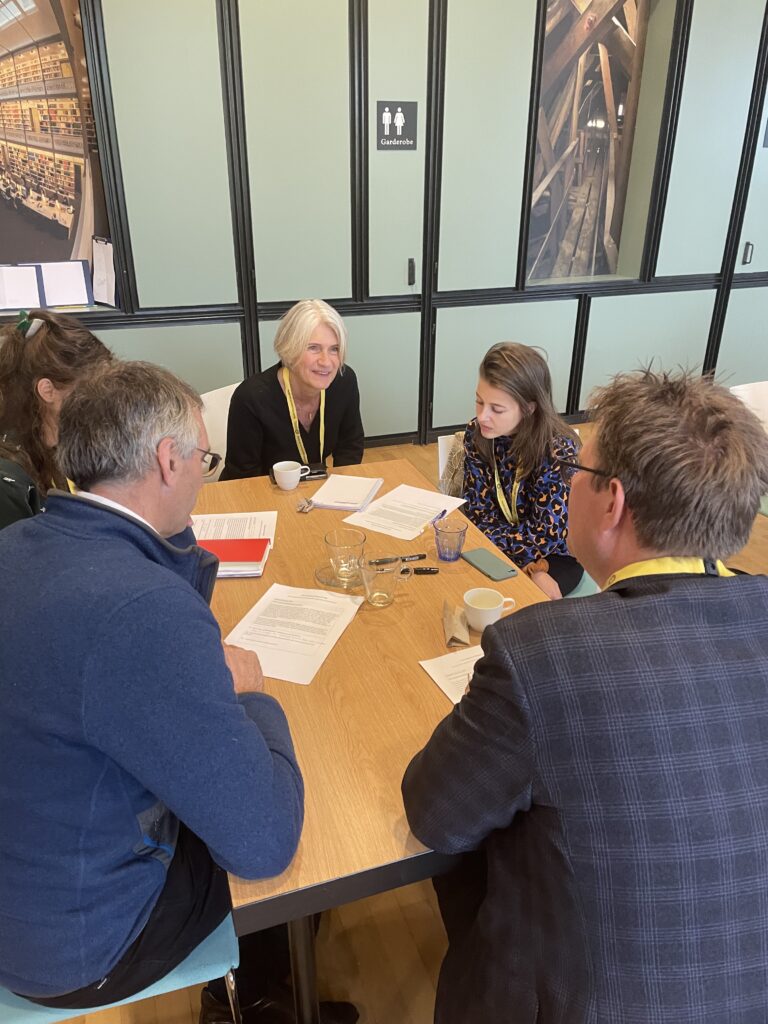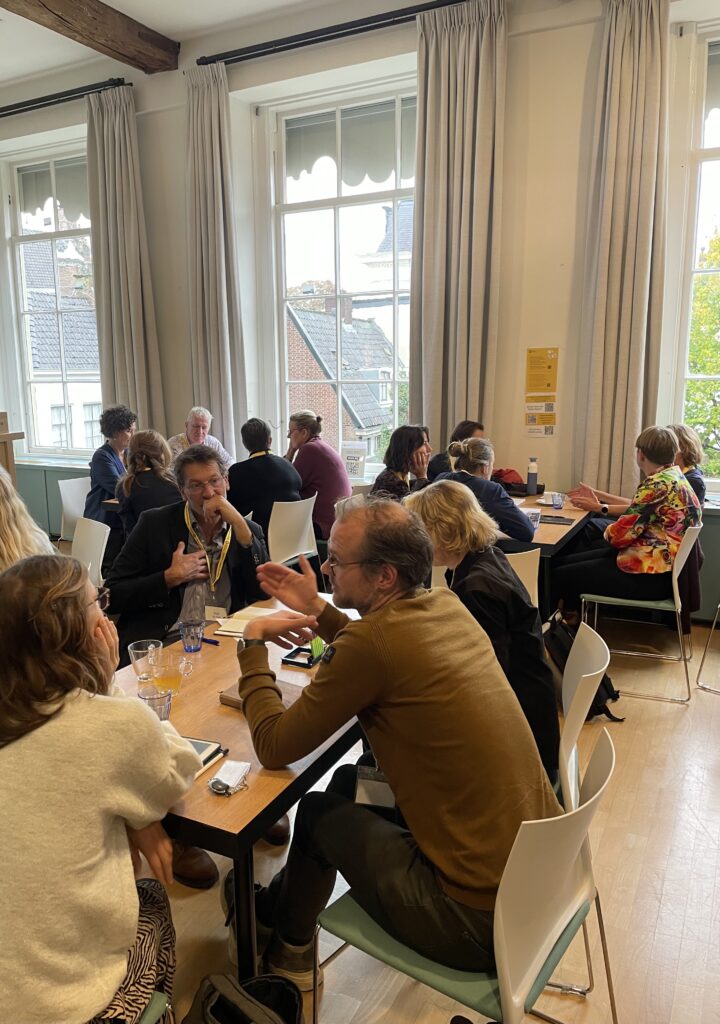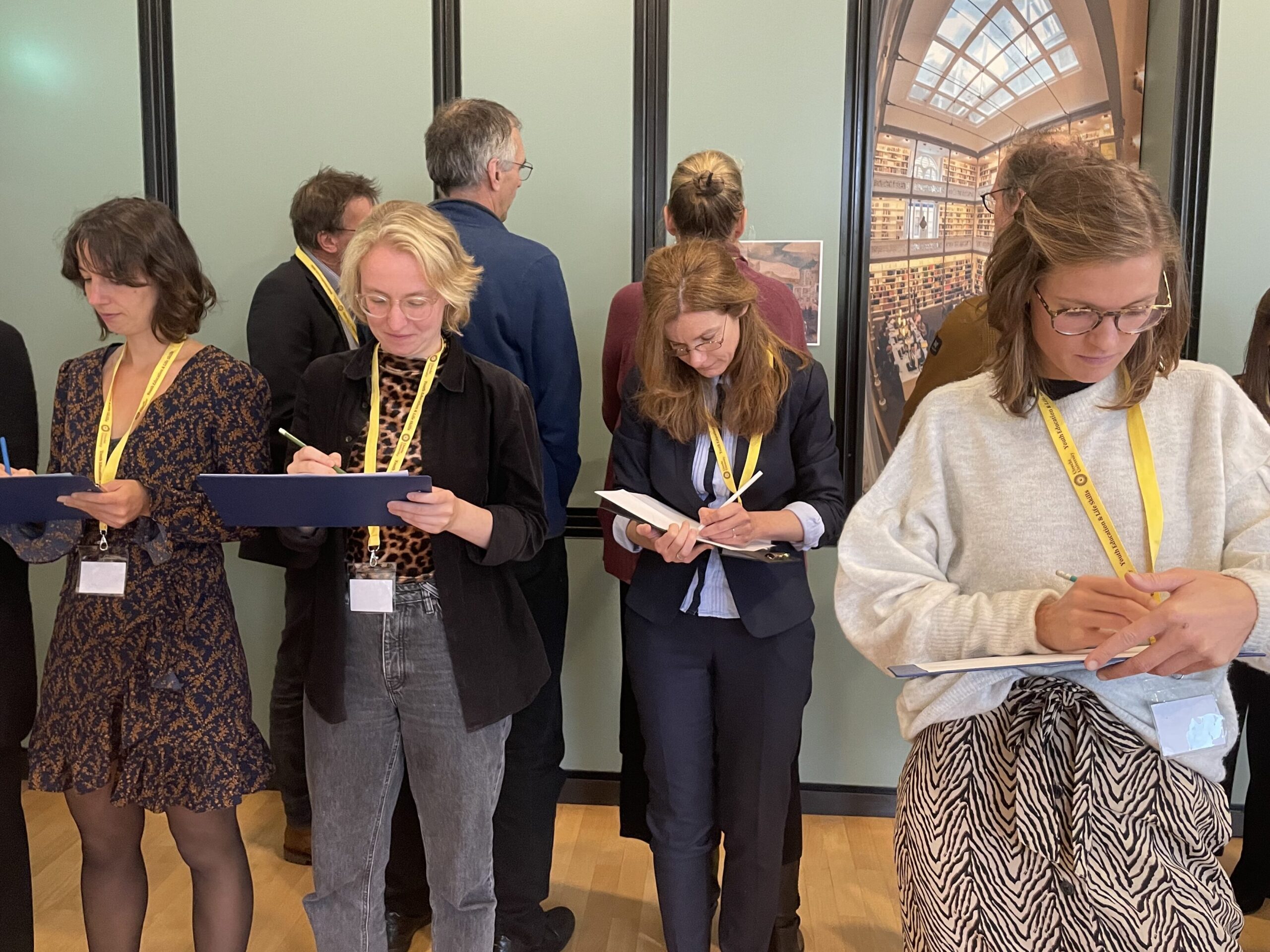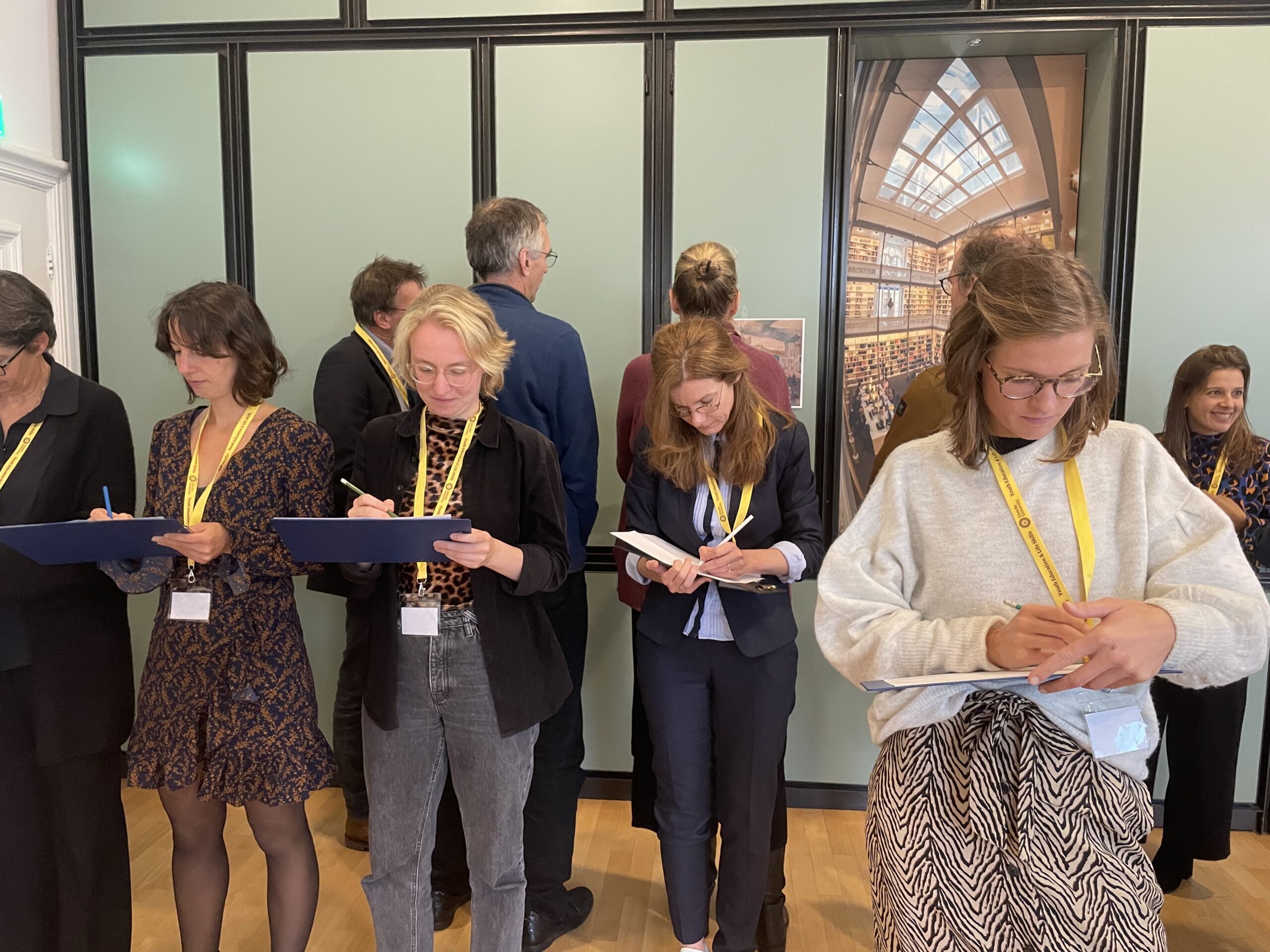Youth Education & Life Skills
Looking back on the Experiential Learning Symposium
On Wednesday 25 October 2023, an interactive Symposium on Experiential Learning was organized by the Youth Education and Life Skills community. The focus was on two questions: Where and how can you include (outdoor/impactful) experiences of students or their peers in your own courses or curriculum? How can we further enhance the (long-term) learning effects of experiences, on both the students themselves and other (peer) students?
Over 30 Utrecht University researchers, educators and education advisers or consultants gathered at the University Hall for an afternoon filled with interaction. The theme of the day, Experiential Learning, is a widely adopted didactical approach in teaching. Experiential learning is a method that emphasizes learning by doing and real-world experiences. It can significantly stimulate students’ learning by engaging them in activities and projects that encourage life skills like problem solving and critical thinking. However, undergoing experiences itself is not enough; a genuine reflection by both learners and peers is crucial to learning.
As ice-breaker there was a short brainstorm about impactful educational experiences by all Symposium participants, leading to a lively discussion in small groups where sometimes genuinely touching stories were shared. Four inspired researchers from different Utrecht University faculties then told about their experiences with Experiential Learning in their courses. What is more – the speakers really took the Symposium participants along in their experiential learning assignments. This resulted in four interactive ‘mini’ seminars in which the participants actually also took the assignments using the Experiential Learning method. Many participants discovered that learning does not only go by reading or listening, but also by picturing, drawing, interpreting, simulating and doing, followed by time for reflection in small groups.
In those small groups, participants also discussed how to include (outdoor/impactful) experiences of students or peers in their own courses and jointly discovered surprising and exciting opportunities. They also came up with tips and tricks to further enhance the learning effects of the experiences the four main speakers presented – for instance, by letting peer students also get a view of the virtual courtroom through the VR glasses, or by giving autonomy to the students in selecting experiences and impactful events to share with other students, or by increasing interactive reflections via intervision assignments.
We would like to express our gratitude to all speakers and participants who contributed to making this day a success. We hope that the experiences and insights gained during the Symposium serve as inspiration for others in their teaching endeavors.





